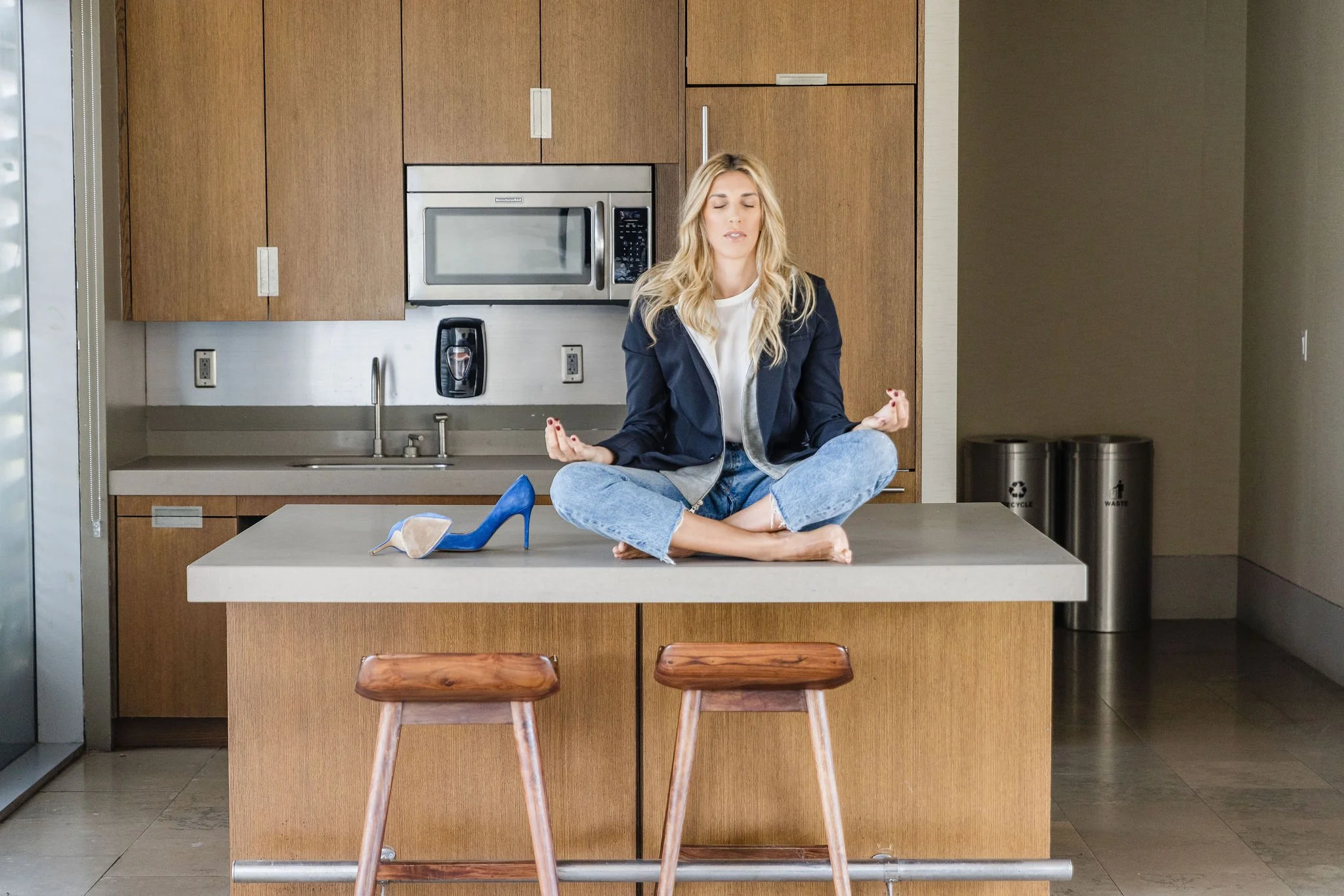Meditation 101
It’s kind of a funny thing - when I talk to someone about my business, they inevitably describe their meditation practice… or lack of one.
Especially lately, I’ve been hearing lots of excuses about why they’re just that one unique person who literally cannot meditate.
So, it felt like a good time to revisit how to start meditating and some of those all too common excuses for not doing it, especially since May is Mental Health Awareness Month.
But first, a refresher on the potential benefits of meditation and why you may want to start a regular practice:
Increased focus
Increased life satisfaction
Reduced anxiety
Greater mental resilience
More effectively deal with stress
Reduced irritability
Increased compassion
Increased self-awareness
Now for all of those excuses. Which ones have you used??
I don’t have time. Those days when you think you don’t have time to meditate are probably the days when you need it the most. Meditation is something that you will have to prioritize, but I know plenty of people who have kids, their own businesses, and endless obligations who are able to fit it in their schedules. It doesn’t have to be perfect. Maybe on those busy days, you meditate for 5 minutes instead of 10 or in the uber instead of your usual spot. Get creative and you can make it happen.
I have too many thoughts. Of course you do. We all do. That’s the point. A common misconception with meditation is that you are supposed to clear your mind of all thoughts. Instead of freaking out about every thought that shows up, focus on your breathing, and practice not engaging with those thoughts. One of my favorite explanations is to think of your thoughts as clouds passing by. Just watch and observe them drifting. No need to push them away or engage, let them float on by. And if you happen to spend your meditation session worrying about your to-do list no big deal. Whow up again tomorrow and try again.
I skipped a few days and ruined my practice. Progress, not perfection. Doing it most days is better than never doing it. Meditating for one minute a day is better than never meditating. Do the best that you can, and don’t judge yourself when things inevitably don’t go perfectly.
I don’t notice a difference. This is not a magical overnight solution. While a consistent meditation practice can have a number of benefits (see above), everyone’s experience is different, and it can take some time to notice the results. But focus on how you feel before/after. Do you feel more at ease? More present? More focused? Less irritable? More in tune with your body? Notice the subtle shifts and stick with it consistently.
I’m not sure I’m doing this right. There is no perfectly right way to meditate. Some days it will be easy and you feel great after, some days it will be super annoying to sit there for 10 minutes and you will go right back to your stressful thoughts. Just keep showing up.
I am afraid to get quiet and be alone with my thoughts. This is an interesting and common one. In a world full of distractions, it is very easy to avoid stillness. But what you are avoiding won’t go away. Getting quiet with those thoughts will allow you to deal with them and view things in a more objective and clear manner. You can also start small - just a few minutes - and build up to longer meditations.
I don’t know where to start. Valid. There are so many different ways to get started and it can be overwhelming, but experiment with different methods until you find something that resonates. You can try an app that has a specific program you follow. You can experiment with different mantra meditations. Or you can start simple and just set a timer for 10 minutes and sit quietly for that time. Of course, I am always happy to provide a recommendation - reach out and let’s chat.
I promise - starting a consistent meditation practice will have an outsized impact on your life!


